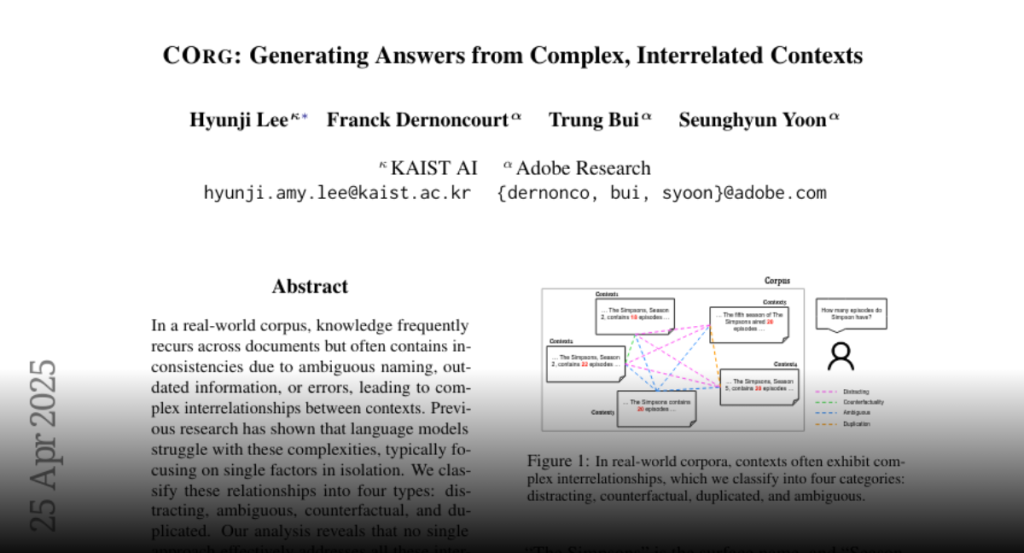In a real-world corpus, knowledge frequently recurs across documents but
often contains inconsistencies due to ambiguous naming, outdated information,
or errors, leading to complex interrelationships between contexts. Previous
research has shown that language models struggle with these complexities,
typically focusing on single factors in isolation. We classify these
relationships into four types: distracting, ambiguous, counterfactual, and
duplicated. Our analysis reveals that no single approach effectively addresses
all these interrelationships simultaneously. Therefore, we introduce Context
Organizer (CORG), a framework that organizes multiple contexts into
independently processed groups. This design allows the model to efficiently
find all relevant answers while ensuring disambiguation. CORG consists of three
key components: a graph constructor, a reranker, and an aggregator. Our results
demonstrate that CORG balances performance and efficiency effectively,
outperforming existing grouping methods and achieving comparable results to
more computationally intensive, single-context approaches.

